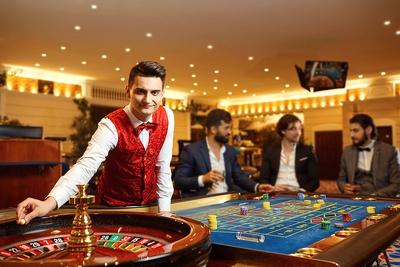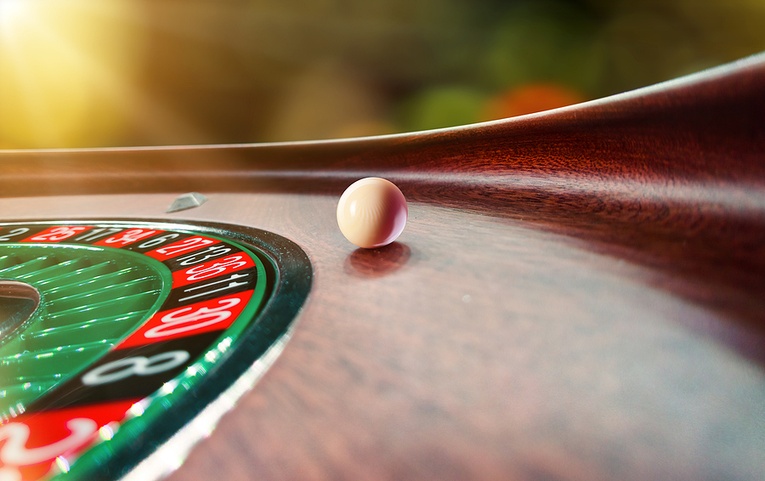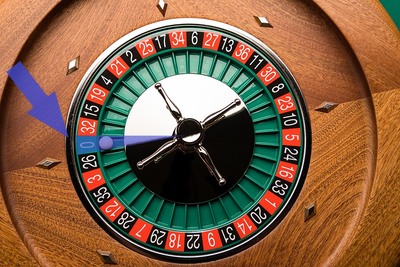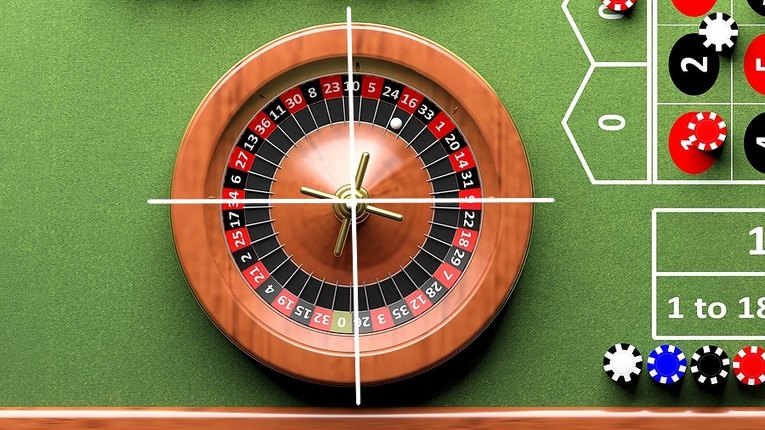 This is an extremely contentious subject, with adamant people on both sides of the debate, and it’s a question that could be impossible to answer with any sort of certainty too.
This is an extremely contentious subject, with adamant people on both sides of the debate, and it’s a question that could be impossible to answer with any sort of certainty too.
Roulette is designed to be as random and as fair as possible – apart from the odds but that’s to be expected – so the idea of a croupier being able to control the outcome of a spin is always going to cause murmurings.
Can they control where the ball lands? The answer is technically no, because a dealer cannot possibly put the ball into a specific pocket each time.
They can aim for it, and perhaps get near it some of the time, but then how much of that is down to luck and how much is down to skill?
We will look at this in more detail but the short answer is ‘no’, while perhaps the more accurate answer is ‘sort of, sometimes’.
There are a few things to consider here, so let’s start with what the dealer does have control of.
Spin Force, Velocity and Ball Position

What the dealer definitely does have control of, is how fast they spin the wheel, how fast they spin the ball, and when they release the ball.
However, they can’t realistically control this perfectly accurately.
These things are all done on judgement – you can’t decide to spin the wheel at exactly 1 newton of force or at a velocity of 2 meters per second, for example, because you would have no way of measuring or controlling it in the moment.
That said, human judgement is probably good enough to keeps things fairly consistent when spinning the wheel and releasing the ball, so it’s conceivable that a dealer could spin the wheel at around about the same sort of speed each time – but certainly not in perfect tandem.
This is not enough though, because even if you had the best judgement in the world and released the ball at exactly the same point on a wheel rotating at exactly the right speed, the roulette wheel has diamond shaped frets built into it, which disrupt the ball’s journey, flinging it around the wheel.
On top of that, each pocket is only small, so when the ball gets to the bottom of the wheel and hits them, it is very rare for it to find a home straight away, and will usually bounce between them before finally running out of steam.
A dealer might be able to judge their spins to dodge the frets some of the time, but it would be inconsistent and they would still have to deal with the pockets.
Therefore, even the dealer with the best judgement in the world would have their accuracy destroyed by these factors.
The question then is, what level of accuracy remains once this has been taken into account?
Dealer Accuracy
 So getting the ball in a specific pocket every time simply isn’t going to happen, there are way too many variables that get in the way so the answer on that one is a hard no.
So getting the ball in a specific pocket every time simply isn’t going to happen, there are way too many variables that get in the way so the answer on that one is a hard no.
Getting the ball to land in a specific section of the wheel on the other hand… might just be doable.
At least, it might be doable enough of the time to turn the odds in your favour.
Even this is debateable, but many people – including lots of dealers – believe they can get the ball to land in a specific quadrant of the wheel more times than not. Some even suggest they can land it within 2 or 3 numbers of the target.
If this was true, the dealer could be a very valuable ally to any player who was willing to cheat to make money.
Even if the dealer and the player weren’t in cahoots, it suggests that a repeating pattern of behaviour from the dealer will result in a similar pattern of behaviour from the ball.
Because if the dealer always uses more or less the same amount of force with the wheel and the ball, then the ball is going to land in more or less the same place relative to where it was released. The point of release wouldn’t even matter.
Simply by covering the numbers in the quadrant the ball is most likely to land in, perhaps with a few contingency numbers on either side, a player could turn the house edge around and then some.
In this way, a dealer who is set in a rhythm and unwittingly creating predictable results could be exploited by a player who knew the wheel well enough to bet on specific numbers quickly once the ball had been released.
For example, if the player noticed that the ball tended to land in the quadrant opposite to the quadrant where the ball was released, they could place bets to cover those numbers without anyone even realising what they were doing.
Even with just 40% accuracy, by doing this the player could end up with a bigger bankroll than they started with.
Quadrants of the Wheel

Splitting the wheel into equal quadrants is impossible because there are 37 numbers – it works out at 9.25 numbers per quadrant – but we want a few numbers either side as contingency anyway so let’s say we bet on 12 numbers per spin, so almost a third of the wheel.
If we bet 1 unit on each of those 12 numbers that’s 12 units per spin. If the dealer’s accuracy is 40% over say 100 spins, we will have 40 wins, and 60 losses – so we lose 12 units 60 times but we win 35 units 40 times.
Our losses from losing spins then, are:
- 60 x 12 = 720
So over those 100 spins we would lose 720 units during our losing spins.
Our winnings from winning spins are not quite as simple, because for every 12 units bet only one of them can win, so even on a winning spin we lose 11 units.
Therefore, for each winning spin our true profit would be 35:1 minus 11, which is 24.
So our actual winnings over 100 spins would be:
- 40 x 24 = 960
We now just have to deduct the losses from the winnings to get a final figure:
- 960 – 720 = 240
So even at just a few quid per unit that’s a very healthy return.
Of course, it depends on the dealer’s behaviour being predictable on every one of those 100 spins, and for that dealer to be good enough to achieve 40% accuracy.
Conclusion
The point here is that while it may be possible for a dealer to control the general area in which the ball lands, it is not probable, and as far as picking out a specific number with any sort of consistency that is utterly impossible.
Many dealers, including a few with a lifetime of experience at some of the biggest casinos in the world, claim to be able to control the general area the ball will land with about 40% accuracy, some even have evidence; but the question still remains as to how much of that is down to luck, and how much is down to judgement?
After all, the ball is bound to land in their chosen area some of the time, but there isn’t a reliable way to prove exactly how it happened.
Even a stopped clock is right twice a day, as they say.
